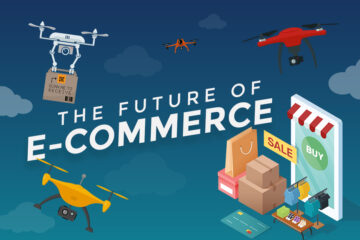Consumers Expect More From Brands to Earn Loyalty

New studies expose how solidly personalization in marketing drives brand name commitment, however consumers feel brands fail to do enough to recognize them as people.
Formation, a company utilizing synthetic intelligence to drive loyalty programs for brand names like Starbucks and United Airlines, launched a report on Wednesday with data that shows that the more personalization strategies a brand name utilizes, the more devoted a customer is to that brand name.
Among the primary takeaways from the research study is simply how substantial personalization in marketing has become. For example, 81 percent of consumers want to share standard personal details in exchange for a more tailored experience.
The study even more exposed that 79 percent of the participants stated the brands with which they engage the most acknowledge them on a one-to-one level; and 73 percent stated they are more most likely to engage with a brand name that uses a commitment program versus one that does not.
The report by Formation, “Brand Loyalty 2020: The Required for Hyper-Individualization,” surveyed 2,000 customers to find that despite the fact that consumers prefer brands with a loyalty program, lots of companies fail to supply such outlets. Much more substantial is that brand names are missing out on opportunities to engage consumers with personalization that acknowledges them on the one-to-one level that consumers increasingly now prefer.
Consumer loyalty has actually dramatically increased in the last 5 years. However it has actually not reached boom status for every single brand name. Winning consumer commitment is ending up being progressively tough, particularly with the economic unpredictability brought on by COVID-19, according to Development co-founder and CEO Christian Selchau-Hansen.
“The need for brands to provide genuine worth has actually ended up being more dire as consumers evaluate acquiring decisions versus individual safety and tighter household budget plans,” he stated.
In this COVID-19 age, consumers are making fewer purchases. Brand names that aim to engage clients beyond a single purchase requirement to better understand customers and must adapt offerings to line up with altering client habits and concerns in order to develop and maintain a devoted client base, added Robert Fagnani, vice president of Strategy at Development.
“Despite the market, brands are all competing to stick out in a congested market, and one-to-one customization that goes beyond fundamental division is the most effective method to do so,” he told CRM Buyer.
Consumers as Stakeholders
Another research study, this one by Gongos, a consultative agency that works with Fortune 500 companies to make customer centricity happen, disclosed that customers, now more than ever, see themselves as stakeholders in the services where they are valued as customers.
During the first half of this year many brands– whether through products or media messages– shifted equipments towards addressing clients’ functional and emotional needs. But pandemic aside, today’s clients are requiring more than deals, according to this survey of 2,700 people around the world.
The Gongos survey findings include:
- 81 percent of global customers think that services see clients as stakeholders, the very same percentage that see staff members as stakeholders, too.
- 75 percent of U.S. customers (68 percent globally) choose that companies inquire directly for their feedback rather than gather info about them without their understanding, e.g. transactional and social information.
- 67 percent of U.S. customers feel that taking part in an invitation-based online community where they engage in discussions associated with a category or company’s products and services would give them a greater sense of function.
“Our survey findings confirm current hints that were surfacing in the market, namely corporations and customers wanting to recognize higher mutuality amongst each other. The problem is, neither are equipped to do so mainly due to a long-standing belief that corporations seek to metrics such as Client Lifetime Value that serve to draw out worth from customers,” Camille Nicita, Gongos’ president and CEO, told CRM Purchaser.
Her business plan is to utilize these study results to shift the paradigm within companies to aim to various ways to create worth for the client over their life time. This starts with treating them as value-added stakeholders to the company, and online customer neighborhoods unlock to a kind of worth exchange that more traditional consumer interactions aren’t fashioned to forge, she said.
AI Replaces Old Techniques
Targeting customers by age, gender, and area is no longer a differentiator. So brands of all sizes need to move beyond fundamental division to develop significant customer relationships that construct brand loyalty with time, described Development’s Fagnani.
Seventy-five percent of customers said the marketing e-mails they open regularly contain their name, indicating this phase of customization is now table stakes. Business must go even more to make consumers feel seen on a specific level, he stated, adding that it takes analyzing big volumes of customer data to make one-to-one personalization occur.
“Investments in advanced digital innovations and exclusive data settle. Brands need to make the financial investment into AI and ML to really master reliable individualization and make greater long-term brand name loyalty,” he stated.
AI’s relevance in marketing will just increase gradually, so getting a leg up on a rival now can assist construct a devoted customer base for later, he kept in mind.
Building Customization with AI
In an age of brand names touting unlimited AI abilities, marketers require to comprehend precisely what AI is and is not, according to Fagnani. Many marketing platforms declare to utilize AI, but in truth AI can vary from a simple algorithm, search ability, or chatbot, to something more sophisticated and powerful.
Personalized deals, chatbots, content marketing and social marketing are all locations of marketing that can be improved through AI, he stated. In addition to having an understanding of AI, it is equally essential for marketers to have a clear set of usage cases that will generate value for their business and clients.
“Identifying and mapping usage cases to the service sets of AI technologies helps focus on the significance of specific functions and requirements, ultimately making purchase choices more efficient,” Fagnani advised.
Commitment Programs Must Be Impressive
Most of respondents (63 percent) just come from between one and three commitment programs. This shows online marketers that a program should deliver exceptional experiences to make the cut.
Furthermore, 77 percent of consumers feel brands might be doing more to earn their commitment. The information, collected simply prior to the statement of the COVID-19 pandemic, has actually ended up being more resonant in current months, according to Formation survey analysis.
“The bar for developing customer significance has risen drastically as tech giants like Netflix, Amazon, and Spotify deliver significantly personalized user experiences,” Selchau-Hansen stated.
“Consumer expectations for individualized experiences are rising, and the pandemic is accelerating that. If brand names desire to foster commitment from today’s customer, they need to deliver experiences and communications so tailored they feel as if they have actually been crafted for simply that one individual,” he added.

The Stages of Customization
Online marketers have many methods to approach customization. But the best methods include understanding the habits and psychographics of clients, according to Nick Swekosky, creator of Market Metrics. Even smaller organizations can carry out customization techniques in their marketing programs.
“Use automation to prescribe details or features to assist increase awareness, engagement, or more actions. Examine customer issues, objectives, and focuses with time in order to specify intent. Based on responses, utilize easy automation like drip campaigns and webinars to supply a more individualized experience,” he told CRM Buyer.
Other techniques consist of carrying out e-mail drip projects with services like Mailchimp. Organizations can also implement webinars with options like Eventbrite and Zoom, he included.
Artificial intelligence can likewise play a function in improving loyalty programs. For instance, AI clustering can assist recognize typical user characteristics relative to user actions. Much better correlating user characteristics to actions will assist to create automation like drip projects that recommend details for users to become more educated and run more efficiently, described Swekosky.
In addition, AI prediction can be used to better understand when users will take particular actions; and to assist choose how, or when, to enhance their service. This supplies automated informational resources that could assist consumers make more informed choices prior to they do something about it.
Use Psychographics
Product marketers can take personalization efforts one action even more using psychographics, recommended Aadith Moorthy, founder & & CEO of Radial, which provides AI-driven personalization services.
Psychographics are the personalities, values, and way of lives of individuals. They are the most basic predictors of consumer behavior.
“E-commerce giants like Amazon and Walmart have currently achieved this at scale, and other business are currently playing capture up. In fact, psychographics is considered the Holy Grail of marketing,” he told CRM Buyer.
Small- and medium-sized companies can find it challenging to have the data and resources to establish psychographics. This is one special area where AI could play a substantial role in generating these levels of details and to scale this across all customers, even for little business.
Radial’s states that its “plug-and-play option” for this is platform agnostic and can incorporate with any CRM, without the requirement to bring in any data or engineer’s time.
The platform utilizes substantial deep knowing generated data on the personalities of those who check out an e-commerce site. Radial then recommends the very best items for them with AI. This leads to 20 percent plus average boosts in sales and significantly minimized churn, according to Moorthy.
Personalization Tips
Personalization is critical to make trust and loyalty. It ought to go well beyond simply “Hello, very first name” to be efficient, Heather Wilkerson, vice president of marketing at Registria, told CRM Buyer.
She provided these secrets to customization success for a business of any size:
- Invest in understanding the customer base and what is of worth to those customers to encourage them to provide the details a business requires to deliver an individualized experience. Motivators are commitment program status, much better service/care, exclusive deals.
- Capture self-reported information by the consumer including, product( s) owned, date purchased, and location of purchase (if not direct). Use those motivators above to motivate consumers to very first act.
- Provide opt-ins to specific channels to really serve a customized consumer experience.
“From there, it is using the combination of the self-reported information, channels, and worth motorists and making it smooth to participate in a two-way conversation that provides valuable info (status, progress to tiers, exclusive promos) that build trust in time,” included Wilkerson.














